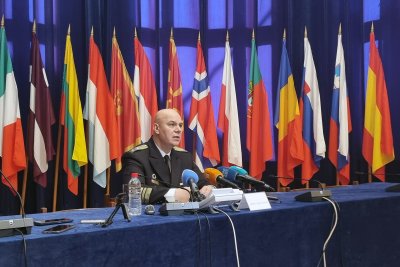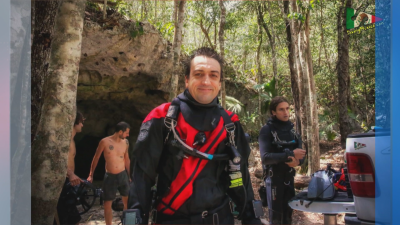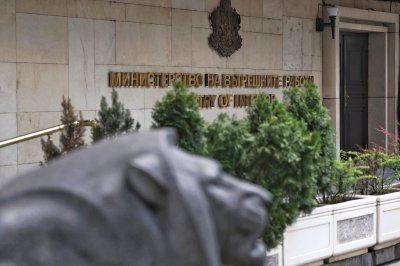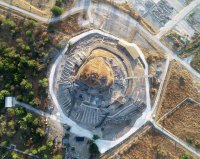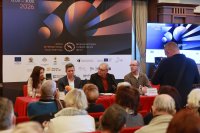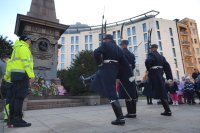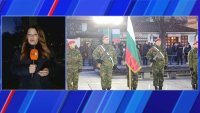An exhibition commemorating the 40th anniversary of the Revival Process in Bulgaria was opened yesterday at the European Parliament in Brussels. Titled "Name, Identity, and Memory", the exhibition is organised by the Chief Mufti’s Office of Bulgaria and hosted by Ilhan Kyuchyuk, Member of the European Parliament from Renew Europe. The event was attended by Bulgarian Turks who were repressed during the Revival Process, most of whom now reside in Turkey.

The exhibition presents not only archival photographs and documents, but also the personal stories, interrupted lives, and the resistance of an entire community.
Myumyun Yumer Kyoseyumer, once a mathematics teacher in Momchilgrad and now living in Bursa, spent four years in prison for protesting against the forced name changes.
Mümün Ümer Köseyümer, repressed: "I am one of those repressed for my name. The four of us organised a peaceful demonstration in Momchilgrad on December 26, 1984. I emphasise — peaceful. I did not utter a single word to any police officer, soldier, or party member. But for organising a peaceful protest, we were sentenced to 12 years of strict imprisonment. I spent three years in Stara Zagora and one in Burgas prison."
“Our name is who we are, identity is a human right, and memory is resistance against forgetting.”
This is what the survivors of the Revival process say and promise to remember the victims and to continue to tell the story of the tragic events.

Mümün Ümer Köseyümer, shared the names of some of the victims:
“Here we stand before those who fell in Momchilgrad. This is Turkan, only 18 months old, shot by a soldier. Abdulaziz, a crane operator I knew personally, was killed on December 26, 1984—the same day as Turkan. Mustafa was arrested for opposing the assimilation policy; he never came out of prison alive and died in 1985.”
The exhibition not only commemorates the victims and reveals historical truth to the European public but also calls for respect for minority rights.
Ilhan Kyuchyuk, MEP for Renew Europe: "
“One of the strongest messages of the EU has always been: never again—never again the bloodshed of the First and Second World Wars, and never again the usurpation and violent suppression of human rights and freedoms. Sadly, every country has moments when totalitarianism outweighs democracy. That is why, together with the Chief Mufti’s Office, we organized this exhibition. It is their work, originally presented in Bulgaria. I brought it to the European Parliament so we could stand united in this unequal struggle for crushed human dignity, regardless of our religion, ethnicity, origin, or whether we come from small villages or big cities. We must be united in the name of democracy. And there are no human rights without democracy.”
Loránt Vincze, Romanian MEP from the EPP group, representing the Hungarian minority in Transylvania—also repressed during Ceaușescu’s regime—added:

Laurent Vinze, EPP MEP, Romania: “The most important thing is to remember, and to ensure that such events never happen again. We must show young generations that our history holds tragic moments. Unfortunately, minorities and dissenters suffered the most under authoritarian regimes—both in Bulgaria and in Romania. We must do everything possible to ensure this is never repeated. This is achievable through education and the safeguarding of minority rights. That is why we are calling for a European standard for the protection of national minorities, so that the name, language, and identity of every person are protected.”
Survivors of the Revival Process still believe that the Bulgarian state in indebted to them.
Myumyun Yumer Kyoseyumer:
“From the Bulgarian National Assembly, we demand the following. I was there and said: There is no democracy in Bulgaria because no one has been convicted for crimes against humanity. This issue should be resolved. I also said: All parliamentary groups are indebted to us, because we fought for democracy, and you are sitting in those seats because of that.”
Forty years later, the memories of the Revival Process remain painful. But survivors take solace in knowing that by showing and telling these stories, they help prevent history from repeating itself.







 Чуй новините
Чуй новините Подкаст
Подкаст




